Have you ever wondered if there is a practical way to learn how to stop buying stuff?
Let’s dig into that a bit. When it comes to money, what is your biggest challenge?
Money, you can’t live without it for sure, and there are plenty of things that prevent you from having a healthy relationship with money. Most people want to make more money, save more money, and pay off debt, but there are some challenges to managing money the way you want to.
But when it comes down to finding a solution to mastering your money, the psychology behind why we do certain things makes it harder. And the way we were raised is another factor that affects how we manage money.
When it comes to the problem of how to stop buying stuff, sometimes the solution is to work with your personality instead of against it. And of course, that’s sometimes easier said than done.
So, here are some simple ways to stop buying stuff you don’t need.
This post may contain affiliate links which means that I may receive compensation at no extra cost to you if you make a purchase from a link found on my site. Please review my privacy policy for further details. As an Amazon Associate, I earn from qualifying purchases. Thank you for your support in allowing this site to continue!
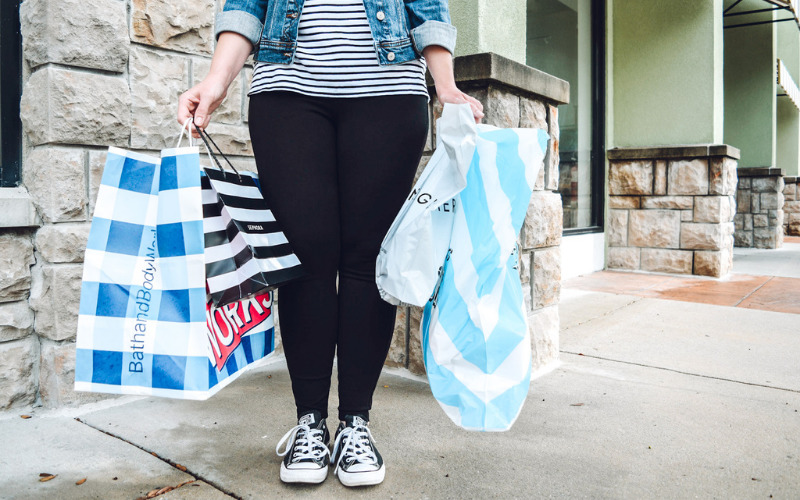
How to Stop Buying Stuff
1. Avoid Temptation
If you know you have a weak spot for shopping for things that you don’t need, avoid the temptation by staying away from the mall or even window shopping. If you’re accustomed to window shopping, substitute that with a walk in a nearby park, or find inexpensive ways to spend time with family and friends.
Most of our friends are trying to save money too (or should be), so they likely won’t be opposed to the idea. You can make it a game or challenge too. See who can find the least expensive fun things to do.
2. Clean Out Closets and Take Inventory of What You Have
You’ll likely be shocked at what you already have if you take inventory. I’ve sorted through closets and given tons of clothes away only to find out I STILL had too many things.
Make a list of everything you have, and you’ll see that you likely have everything you need already. Plus, it gives you the chance to donate to families in need. Have the kids join you so you can teach them about giving things away to help others.
3. Wait Three Nights Before You Buy
How many times have you found something you just have to have, and then you give in to impulse buying and feel guilty later? I think we all have.
Someone once told me that if you find yourself wanting a big-ticket item, sleep on it for three nights. If you still want it three nights later, then consider purchasing it.
This tip really works. Over the course of three days, that impulse often diminishes, and you realize that you likely no longer want or need to buy it. It also helps you realize your needs versus wants.
4. Figure Out the Cost vs. Labor
This exercise is depressing for sure but gives you a reality check. If you find something you want, calculate how many hours you would need to work to buy that item.
If you ask yourself, “is this pair of shoes worth $85,” the reward center of your brain will say, YES! But if you phrase it like, “is this pair of shoes worth a full day of work,” then you’ll think twice (especially if you hate your job).
Reframing things in terms of actual cost versus the feeling you get from buying is a very effective solution for knowing how to stop buying stuff.
5. Remember the Big Picture
You likely want to save money, or you wouldn’t be reading this article. And you probably have a goal and know what you want to do with the money you save.
Maybe you want to buy a new house or save money for your children’s college. Or perhaps you’re a Disney lover, and the money you save will go towards the ultimate trip to Walt Disney World.
Or maybe you’re just trying to save money for an emergency fund or to pay off a credit card. Whatever the reason, when you get the desire to buy something you may not really need, remembering your goal is a great way to curb that impulse.
6. Do a Spending Freeze Challenge
Here’s another way to make a game out of saving money – a spending freeze challenge. Making it a game may satisfy your competitiveness even if you’re only beating yourself. Or make it a challenge between you and your friends.
A no spend week or month means no spending except for the necessities like bills, groceries, or gas for your vehicle. You may want to start with a shorter time frame the first time you do a no spend money challenge.
7. Address Your Emotions
Recording why you purchased something or how you felt when you purchased it is a great way to see what triggers your spending. Are you satisfying an impulse, or do you feel great once you purchase something?
Or maybe you’re upset or sad, and buying helps you feel better because of the increase of dopamine in your body. If I have a bad week, I sometimes feel like I deserve to buy something to feel better.
But shopping based on emotions is dangerous to your piggy bank and could even cause relationship issues with your spouse. It can also make you feel guilty, which triggers you to buy something to feel better. It’s a never-ending cycle, but you can stop it.
Get a journal and note when and why you’re buying something, and then you can analyze it and figure out the problem behind your spending. Then you can address the psychological issue behind your spending habits.
8. Plan Your Purchases
We all need to buy things at some point, so I would never say you can’t buy anything for a year or more. It’s not a realistic goal.
But you can make a plan for your purchases. Planning your purchases is a way to learn how to stop buying stuff. Do your kids need new clothes for school, or do you want to purchase a new house?
Make a plan, and it becomes a decision you’ve thought through. Then you can find ways to minimize the necessary expenses; like saving money on your groceries every month to put towards that new purchase.
There aren’t many purchases you won’t know about in advance.
9. Cancel the Sales Culture in Your Life
Many industries thrive on the “sales culture” when people can’t pass up a good deal because buying things on sale is in their DNA. Shops know they can reel people in with a good sale and FOMO, but there is one thing to remember.
The fear of missing out is a very powerful marketing tactic but remember no sale is final. There will likely always be another one.
The smart thing to do is learn when and how the sales run. That way, when you need something, you can get it for sale and stay on budget.
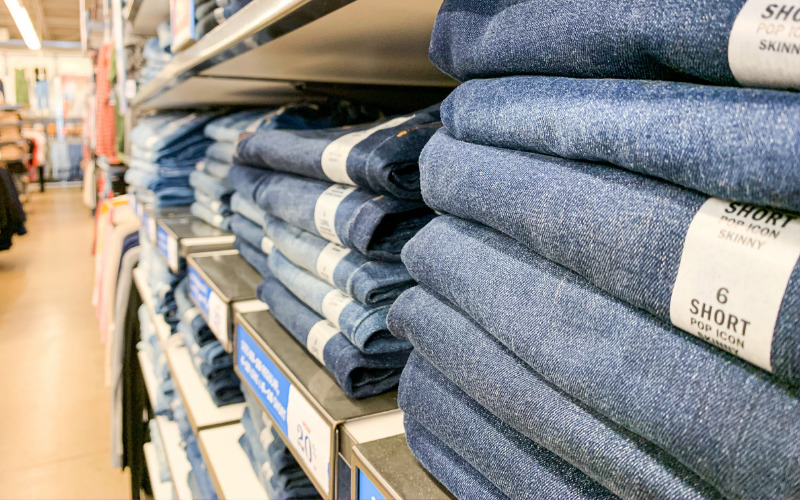
FAQs
How do I stop the urge to buy?
Many of the above suggestions will help you beat the urge to buy things. Additionally, you can also do some of the following things:
- Hide your credit cards to make it harder to shop.
- Block retail sites on your computer.
- Unsubscribe from retailer’s emails
- Don’t go to the mall.
- Monitor your urges, so you have some data to help find other ways to reduce impulse buying.
- When you have the urge, take one or more deep breaths, or find other ways to sidetrack yourself.
What can I do instead of buying things?
The thrill of buying things brings satisfaction to us, so we often need to replace that impulse to buy with something else to do. Here are some things to do instead:
- Host a spa day at home instead of spending money.
- Clean out your closet so you can see what clothes you actually have.
- Want to be a writer? Start working on that novel you’ve wanted to write.
- Start a blog about your journey to save and make more money.
- Save money on books by going to the library. Often you can do this from home to rent books for no extra cost.
- Plan your meals for the next week or month.
- Watch a movie with friends or family.
- Redo your budget with a plan to pay off debt.
- Visit a museum.
Why do I always feel like I need to buy something?
Usually, psychology is behind our need to buy things, and there are several triggers that can cause you to feel the need to buy, such as:
- The high you feel after buying. For many people, buying increases dopamine which gives us pleasure.
- When you see a sale, the idea of saving money kicks in. Unfortunately, you can’t save money by spending. You may pay less, but it adds up over time.
- Retail therapy often helps you deal with other emotions, like sadness.
- Boredom
- Shopping sales make you think that you’re getting value for your money, but it also makes you buy things you don’t need.
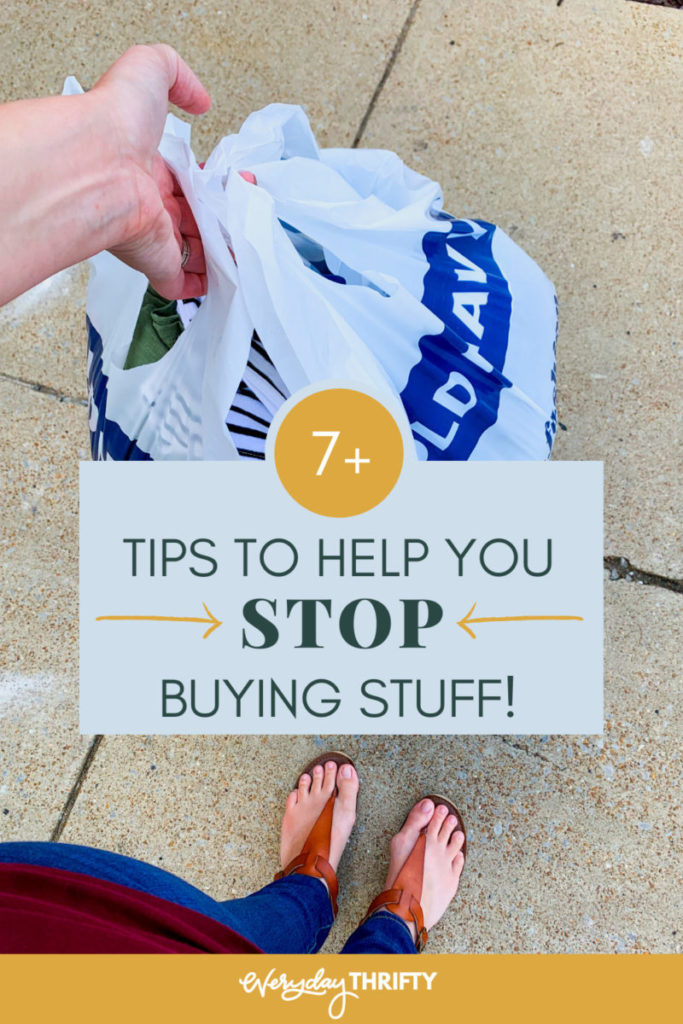
Final Thoughts on How to Stop Buying Stuff
One of the best ways to stop buying unnecessary items is to really track your spending habits and understand the why behind your impulse buying. It can help you adapt your shopping habits and spending choices so that you can save for a big financial goal.
If you try some of these things to limit your impulsive purchases and consumption habits, you’ll find that saving money is easier. Plus, you can fill the emotional holes that buying things fills. You’ll also make healthier daily spending decisions and have a healthier relationship with money than the average person.

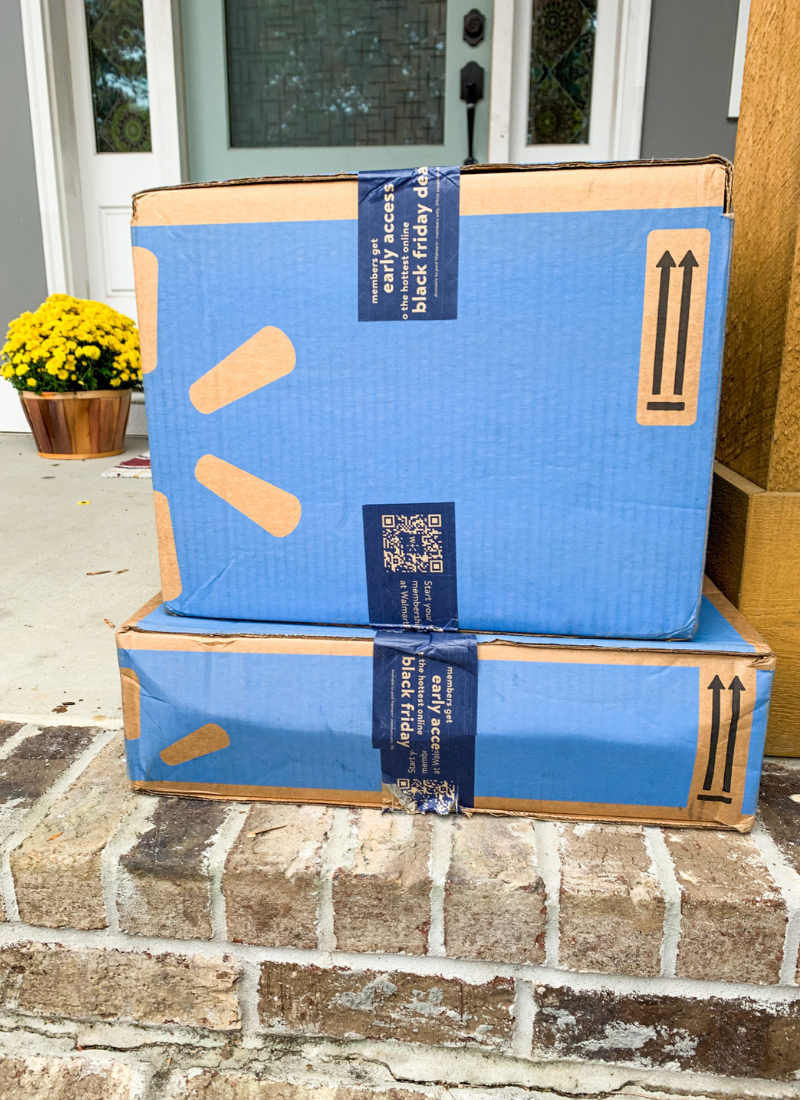
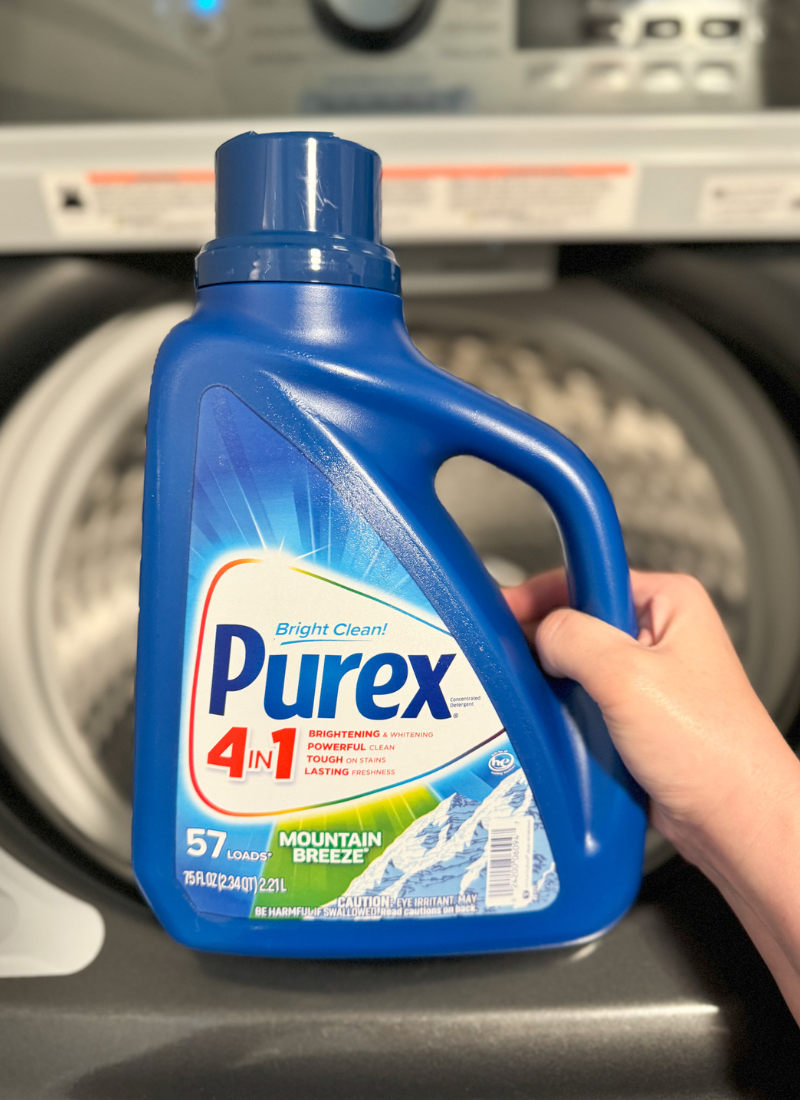
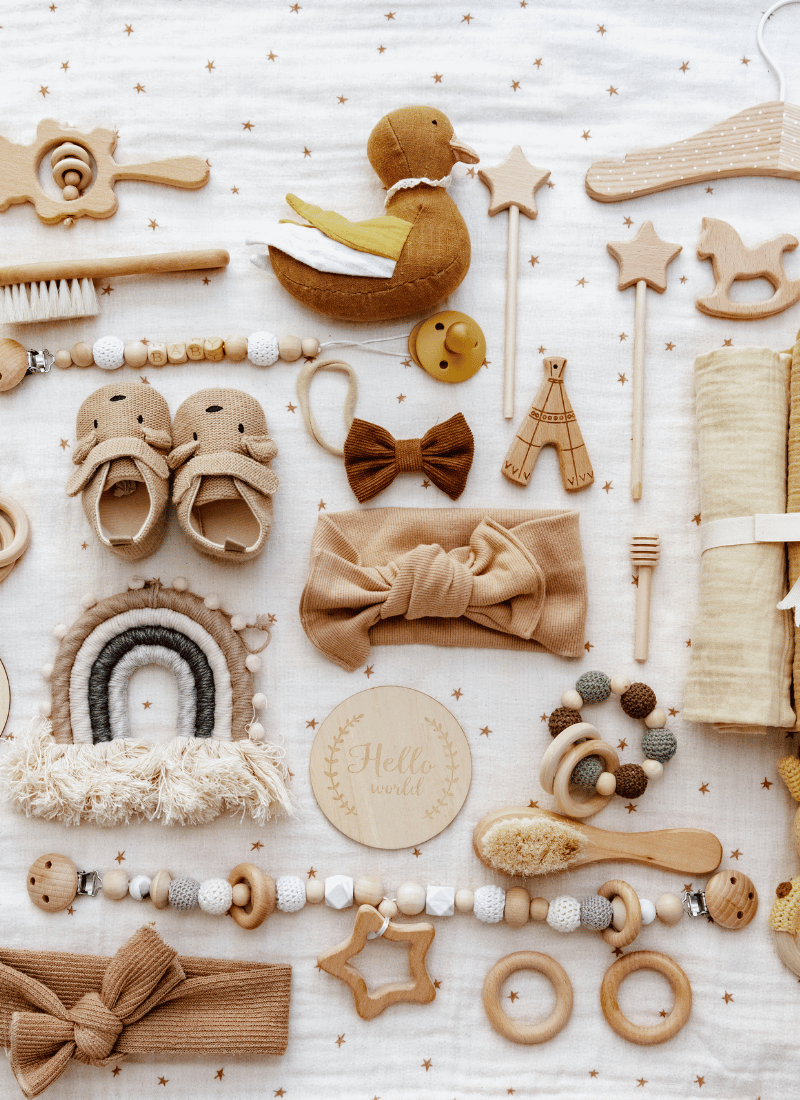

Leave a Reply